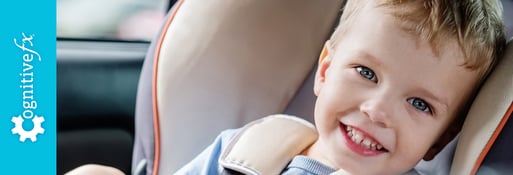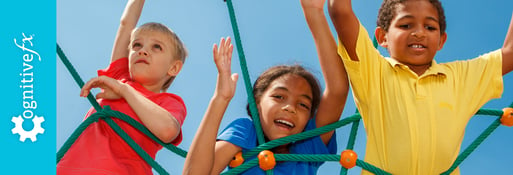A concussion and multiple concussions can cause symptoms like depression, trouble focusing, irritability and other symptoms that make your child feel like seem like they are not themselves. Brain damage from a concussion can cause emotional symptoms that do not resolve on their own.
As a parent, you may have noticed that your child did not to act out or have behavioral problems before the concussion. Understanding that the behavior or complaints you recognize in your child or teen are unusual for them, it is safe to assume it is due to the concussion. While some symptoms like moodiness, rudeness, or anxiety may come from other possible sources, it is possible that they’re coming from a concussion they sustained. Your child does not want to be grumpy or suddenly outburst over simple occurrences. It is not uncommon for children and teens to have behavior difficulties resulting from a concussion diagnosis, associated behavior symptoms/changes include:
- Irritability/anger
- Isolation
- Sadness
- Anxiety/nervousness
- Outbursts
- Crying
- Rudeness
- Moodiness
- Trouble in school
Ways to Reduce Symptoms
Often, these symptoms are indicators of being overwhelmed and fatigued. For example, many children are able to keep it together while at school but fall apart once they return home. If this sounds familiar, we have compiled some temporary tips/advice to help your child or teen not feel so overwhelmed or fatigued from everyday activities.
- Reduce your child’s school load, this is recommended due to your child being exhausted by the end of the school day and won’t have any energy left for the remainder of the day.
- Give your child some time to wind down after school. Encouraging them to do a calming activity like coloring, yoga, listening to soothing music or meditation as ways to clear their mind.
- Avoid or reduce screen time. This is especially recommended if your child has visual deficits, screens can trigger headaches, eye-straining, and eye fatigue which can lead to changes in their mood. This means limiting or eliminating computer, laptop, tablet, TV, and other screen device usage.
- Give your child an outlet for dealing with stress. While your child may have turned to sports as a physical and mental release, your child may no longer know how to handle the stress they feel because they can no longer participate in sports. This can include outlets like creating art, playing outside, or taking the dog for a walk.
How to Process an Outburst

It is understandable that not all outbursts or mood swings can be avoided or stopped. Because we know this is inevitable, we have put together a few tips to help you assist your child or teen through a sudden outburst or mood swing. This will help the situation be as minimal as possible without making the child or teen feel bad or dismissed for experiencing a mood shift they’re not able to completely control.
- Remain calm and try not to escalate the situation: It is typical to meet anger with anger or frustration with frustration. Take a deep breath before responding to your child and try not to allow their heighten emotions to influence your response.
- Label the emotion: For example, “You seem to be very upset” or, “I can tell that you are feeling angry.” Labeling the emotion can help your child recognize their feelings and begin the process of choosing how to deal with the emotion(s)
- Assist in them in solving the problem: For example, “I don’t like being yelled at. Can you please make a request?” or “I bet there’s a different way to talk to your sister. Let’s try that again.”
- Ask what they need: While most children don’t know what they need when they are upset, it can help to feel like they have some control.
- For younger children, give them two choices like, “I can tell you feel overwhelmed. Would you like to take a break or go play on your own?”
- For older children, you could say, “it seems something isn’t working. What would help your situation?” or “Do you need some time to sort this out on your own?”
- Remain Empathetic & Supportive: Remember that your child is dealing with many difficulties and some just happen to come out emotionally. Let them know you care and are there for support. For example, you can say”I’ve noticed you get angry when you feel overwhelmed, I know you don’t like feeling this way. Let’s see what we can do to help you feel not so overwhelmed.”
We understand that the recovery journey is not as simple as it seems. We applaud you for helping your child believe things can get better, and taking the time to search for ways to help them through the after-effects of a concussion injury. At Cognitive FX, we hope you can see just how critical your role plays in your child’s recovery journey. To see if your child or teen is eligible for treatment, schedule a complimentary consultation with our staff.






